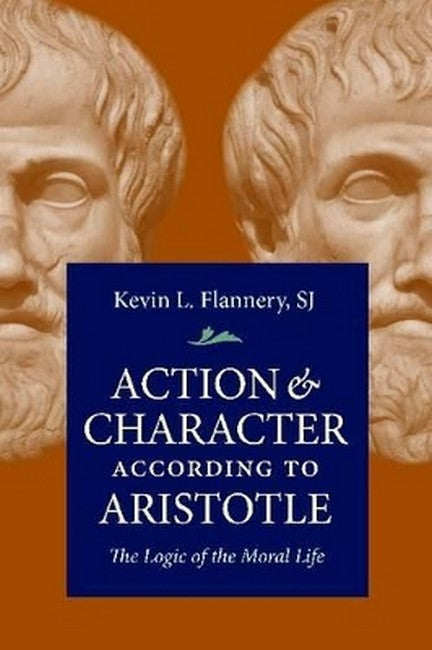Kevin L. Flannery, SJ is professor of philosophy at the Pontifical Gregorian University, Rome, Italy.
Request Academic Copy
Please copy the ISBN for submitting review copy form
Description
"Action and Character is recommendable for reference libraries and doctoral-level researchers, especially experts in Aristotelian and scholastic ethics, historians of philosophy with a focus on Aristotle, and advanced Thomist scholars who desire a more robust philosophy and further insight into the foundations of many current controversies. In this focused work, Flannery skillfully provides much scaffolding and foundation for ethical thought."--Rev. Ezra Sullivan, The National Catholic Bioethics Quarterly " a detailed and closely argued scholarly monograph with insightful interpretations of difficult passages in Aristotle; it helpfully relates a sophisticated account of the nature of human action as such with a larger Aristotelian understanding of morality. Flannery has largely hit his mark and offers a valuable contribution of lesser known aspects of the Aristotelian understanding of moral action, which will be welcome to specialists interested in the broader Aristotelian tradition of ethical reasoning, including those in the Thomistic tradition."--Matthew Lu, Univ St Thomas, American Catholic Philosophical Quarterly ""A wonderful book, brimming with fresh insights, both of a broad philosophical nature, about main themes in Aristotle's ethics, and of a philological character . . .It makes significant contributions to ethics, action theory and moral philosophy, while also making distinctive contributions to Aristotelian scholarship." --Michael Pakaluk, professor of philosophy and chair, Ava Maria University"-- "A detailed and closely argued scholarly monograph with insightful interpretations of difficult passages in Aristotle; it helpfully relates a sophisticated account of the nature of human action as such with a larger Aristotelian understanding of morality. Flannery has largely hit his mark and offers a valuable contribution of lesser known aspects of the Aristotelian understanding of moral action, which will be welcome to specialists interested in the broader Aristotelian tradition of ethical reasoning, including those in the Thomistic tradition."-- "Flannery brings to bear upon many technical and complicated discussions exactingly careful and learned interpretation that is often informed by works throughout Aristotle's corpus and from the ancient Greek commentary traditionThe careful student of Aristotle's ethical treatises will find much to learn from and struggle with in Flannery's volume."--Ancient Philosophy "Flannery displays a careful but facile control of the relevant texts, bestows an attentive openness on other scholars who have addressed these texts and issues, and in an unhurried style endorses Aristotle's approach as the way to an objective, nonsentimental knowledge of human moral psychology that is humane but still confident"--Heythrop Journal "Flannery's discussion of character and action is a significant addition to the understanding of praxis and the ethical life within the Aristotelian corpusso exhaustively and skillfully written that it should serve as an essential reference for anyone looking to understand philosophical problems in Aristotelian human action and how they may fruitfully be discussed using the entire Aristotelian corpus."--Journal of Hellenic Studies "In this focused work, Flannery skillfully provides much scaffolding and foundation for ethical thought. He invites his readers to take the next step and make St. Thomas Aquinas and other thinkers his interlocutors. It took work to make these difficult texts intelligible; it will take more work to show their direct significance for the controverted issues of today."--National Catholic Bioethics Quarterly "Will be of interest to students of Aristotle for its examination of how ethics is knowledge without being science, its nuanced appreciation of how Aristotle's logic. Physics, and Metaphysics are relevant to ethics, and especially its use of the Eudemian Ethics to refine and extend positions taken in to Nicomachean Ethicsalso relevant to larger concerns about the type of knowledge that we can and should expect from ethical theory and, by extension, from moral theology."--Theological Studies

